Abstract
The specificity and mechanism of altered intestinal transport of diabetic rats was studied with an everted ring technique. Increased intracellular accumulation of amino acids, as well as galactose and 3-O-methylglucose, was demonstrated in diabetes. The greater accumulation by diabetic intestine could not be attributed to a direct effect of the agent used to induce diabetes or to an alteration in food consumption. Although the changes were related to the severity of diabetes and could be reversed with treatment with insulin, they could not be modified by addition of insulin in vitro. The changes could not be induced in control intestine either with hyperglycemia from glucose infusion or preincubation with glucose in vitro.
Although the higher concentration gradients of amino acids, galactose, and 3-O-methylglucose could result from increased energy utilization by diabetic intestine, an alteration of cell membrane function, as well, is suggested by the demonstration with kinetic studies of increased influx with an increase in Vmax.
Full text
PDF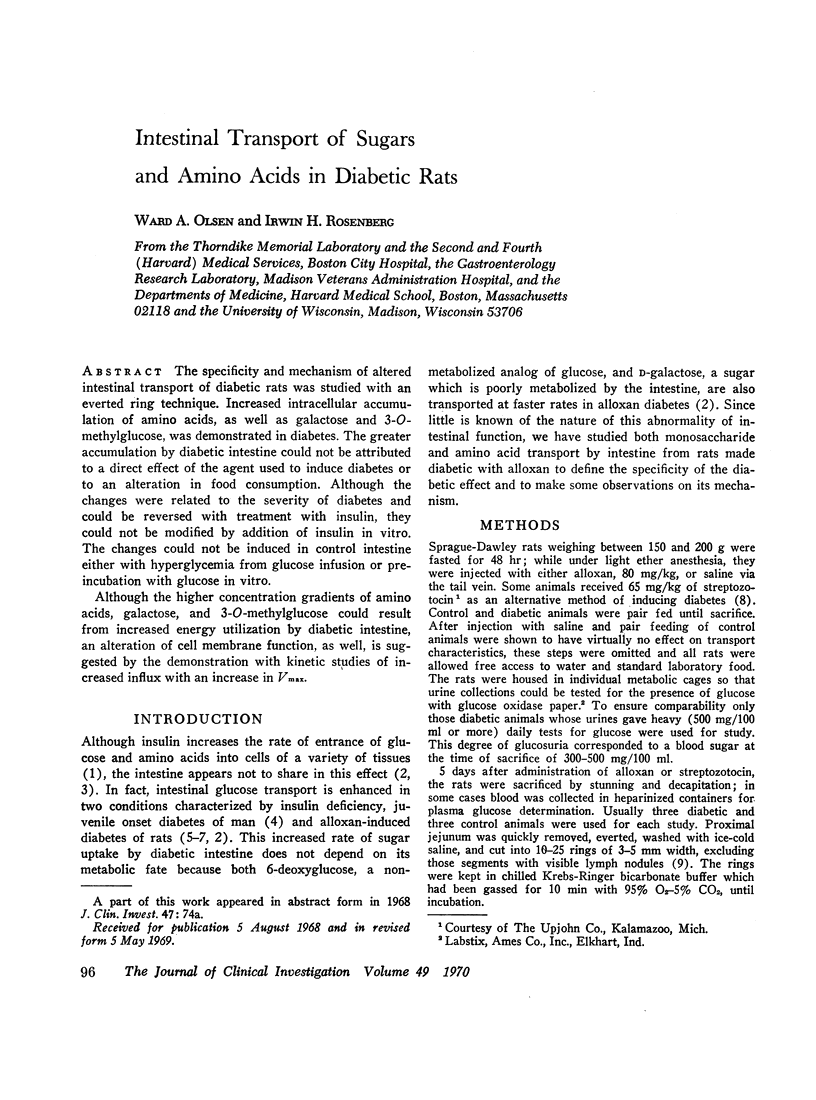
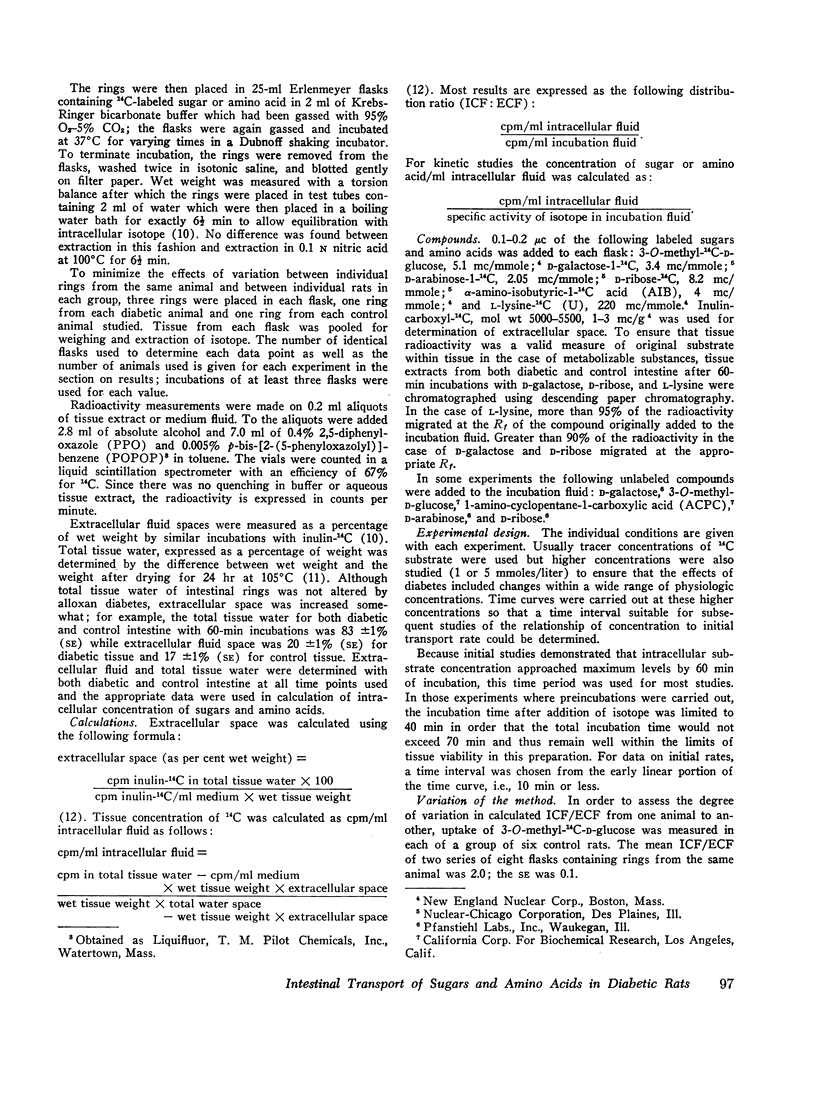
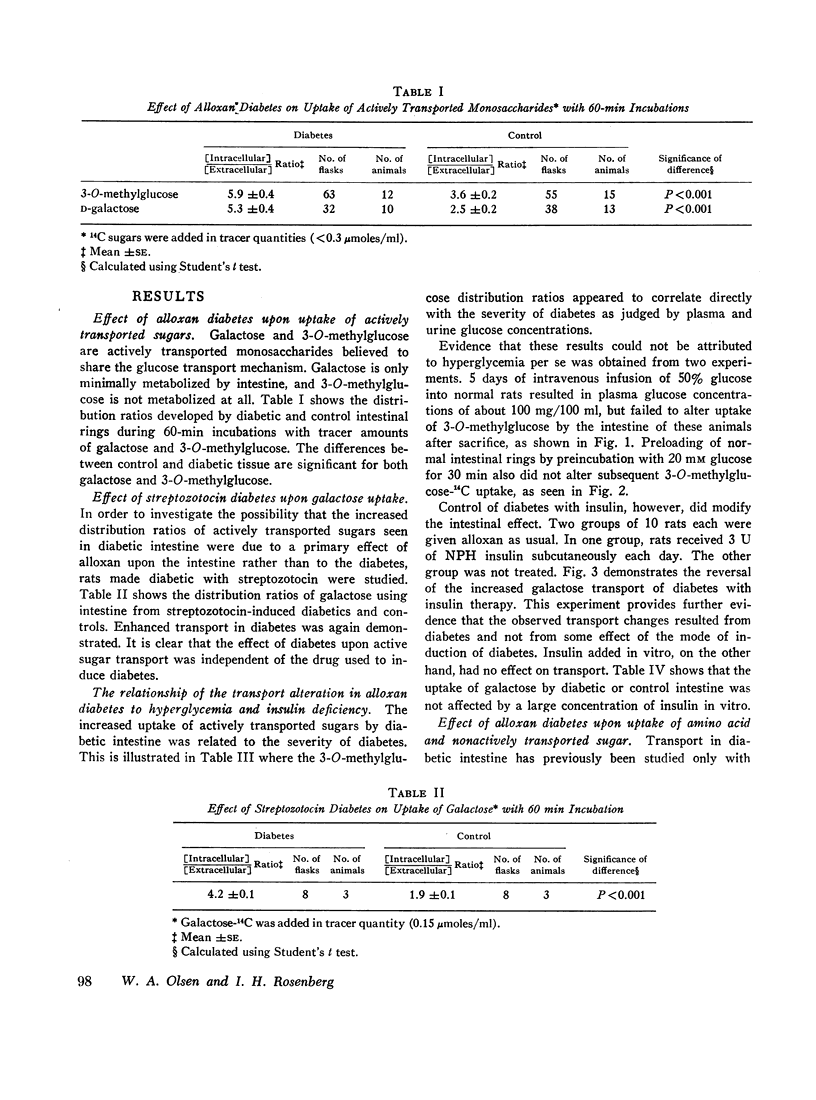
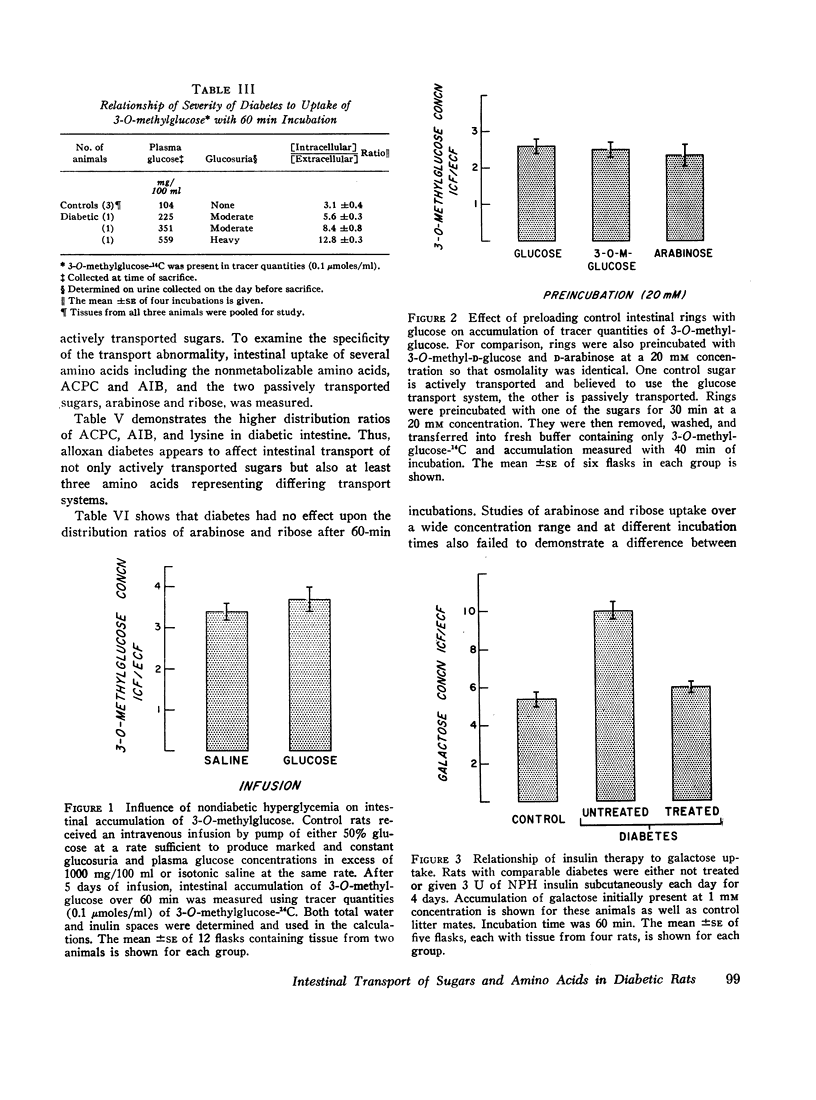
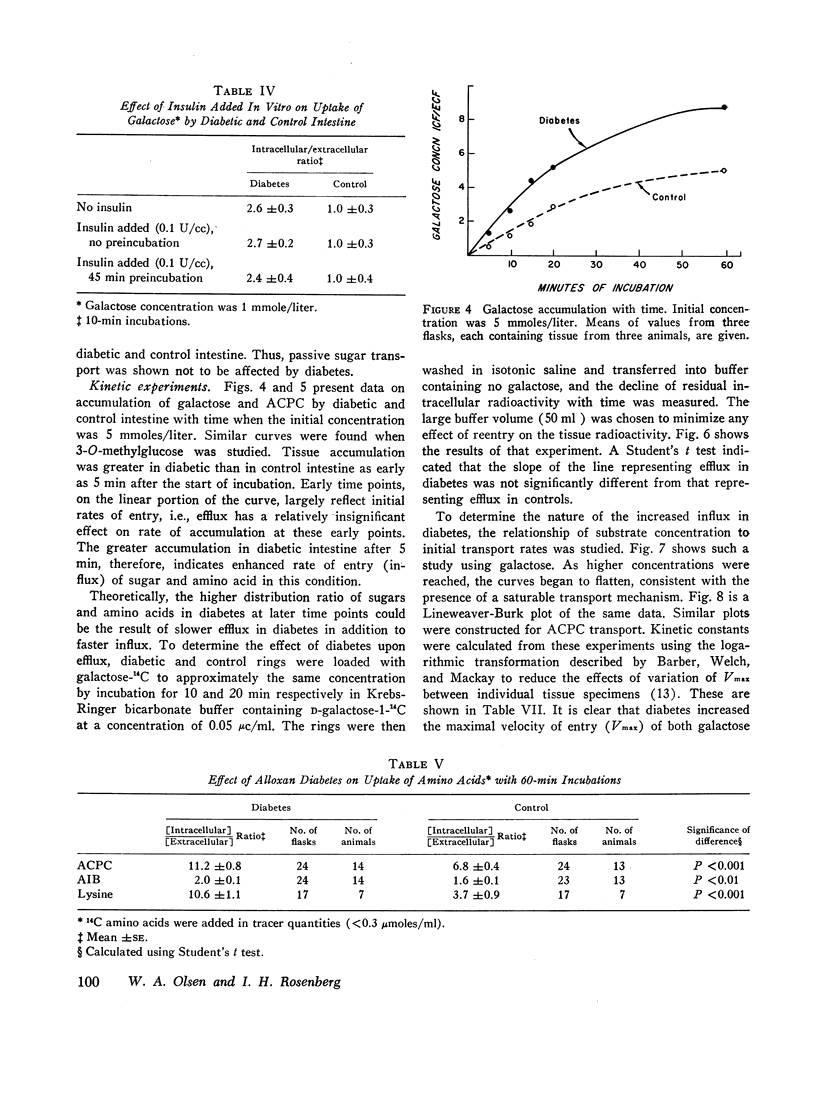
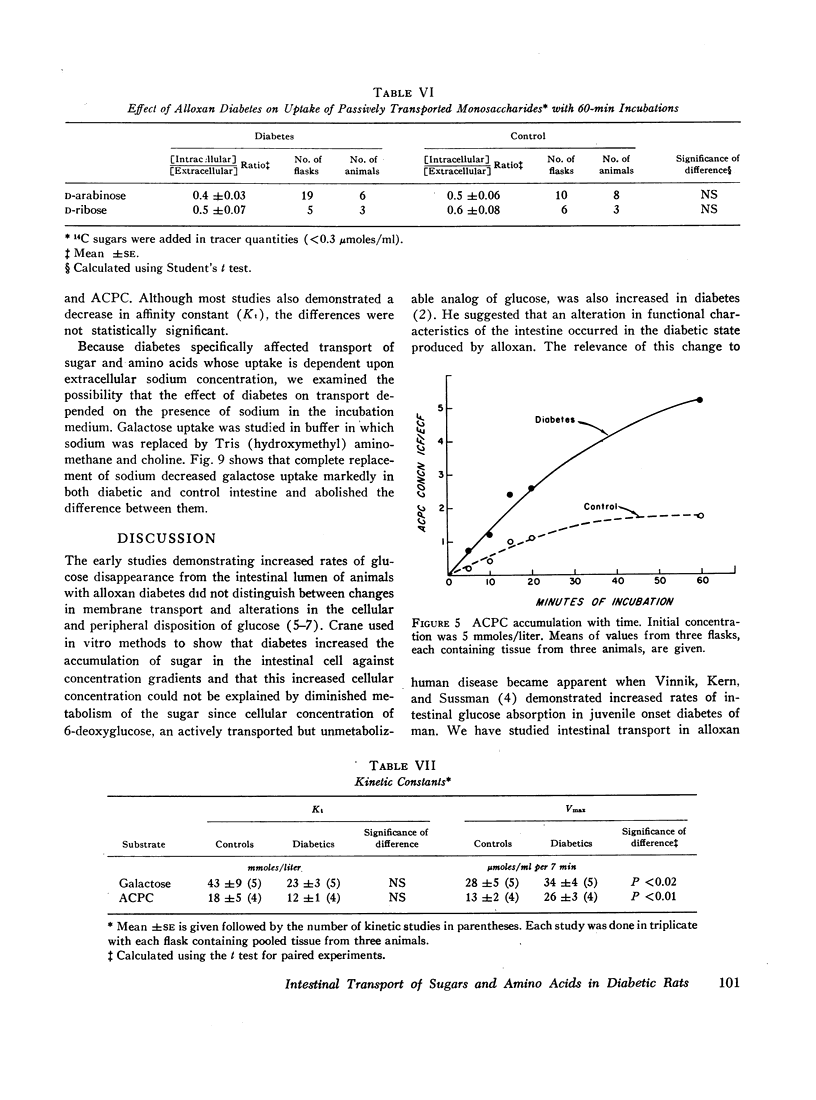
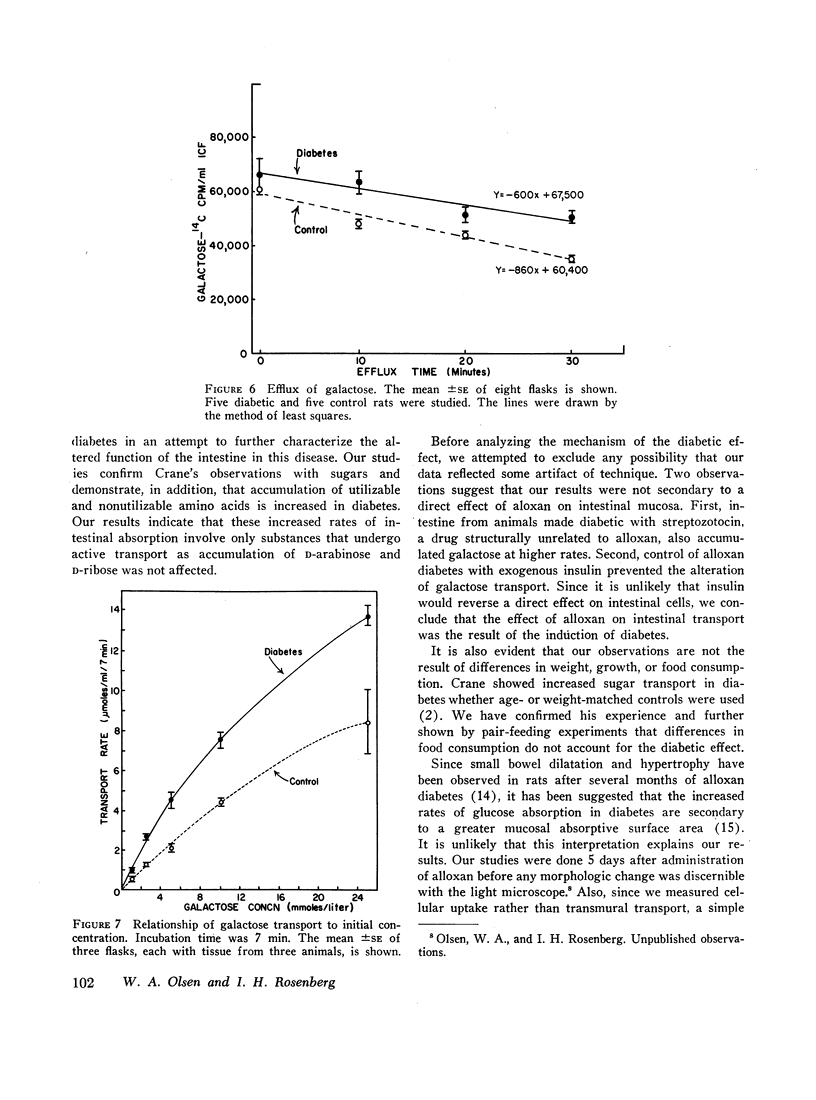
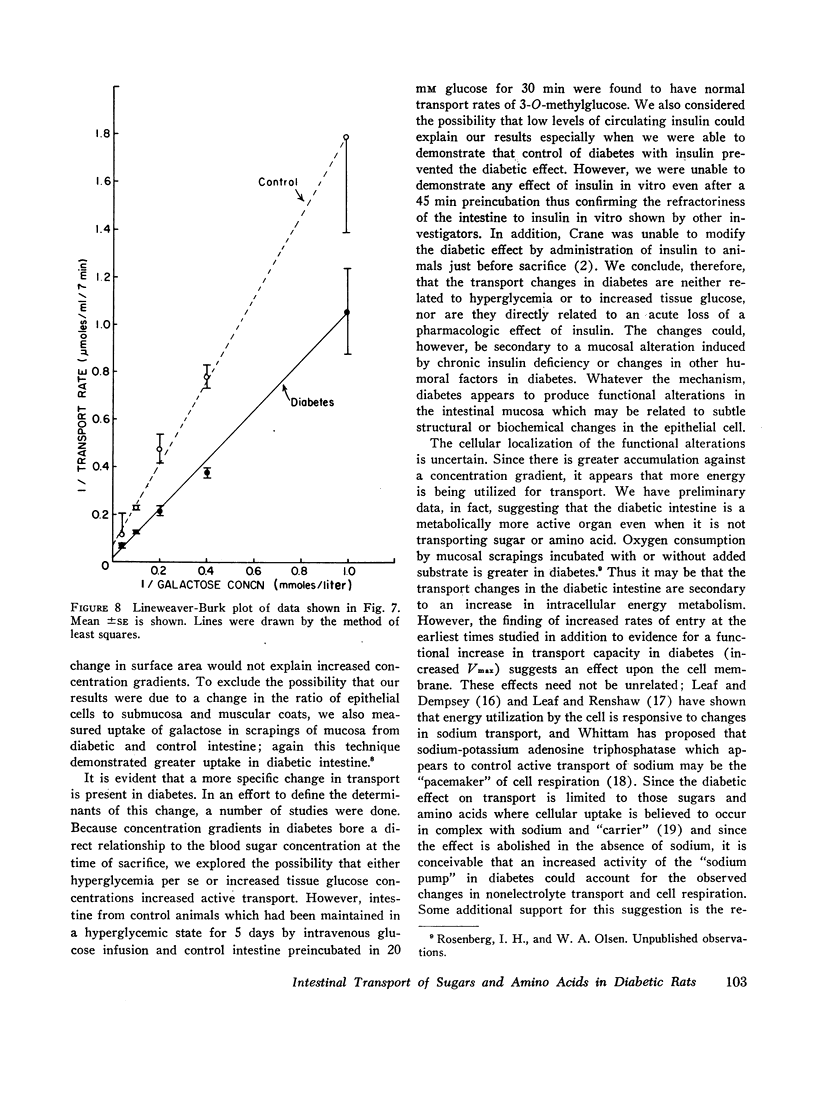
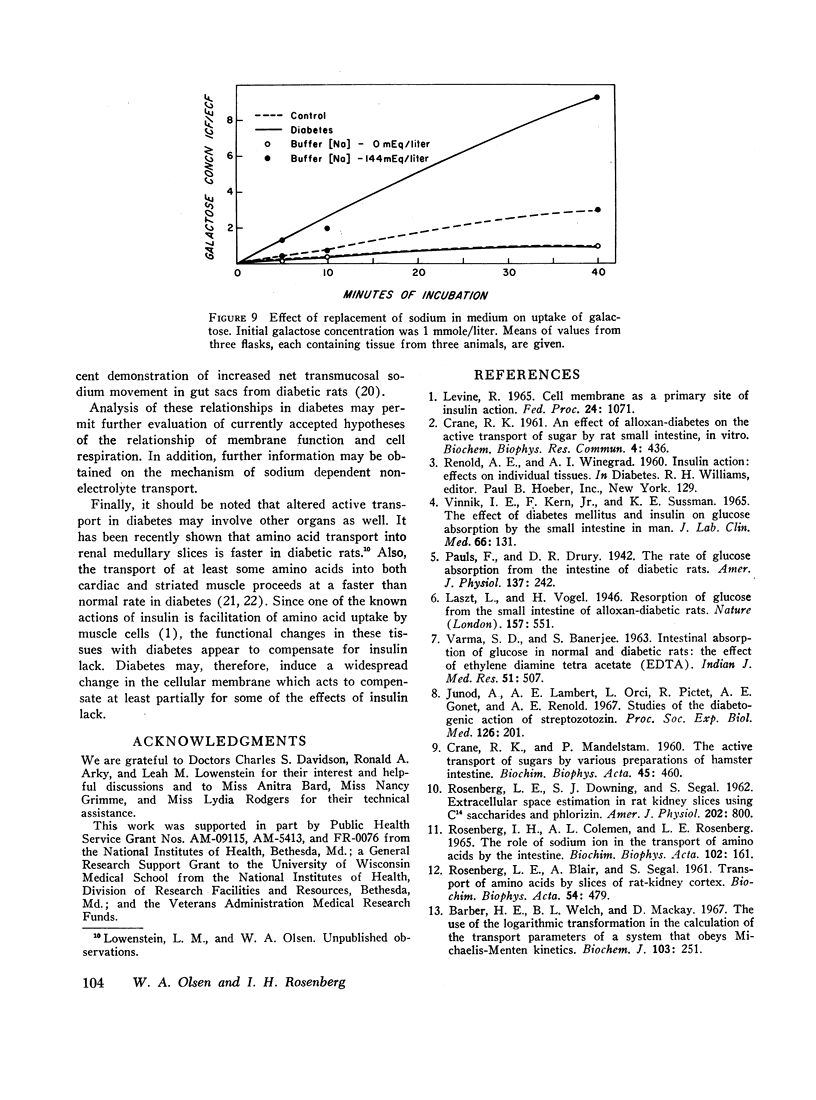
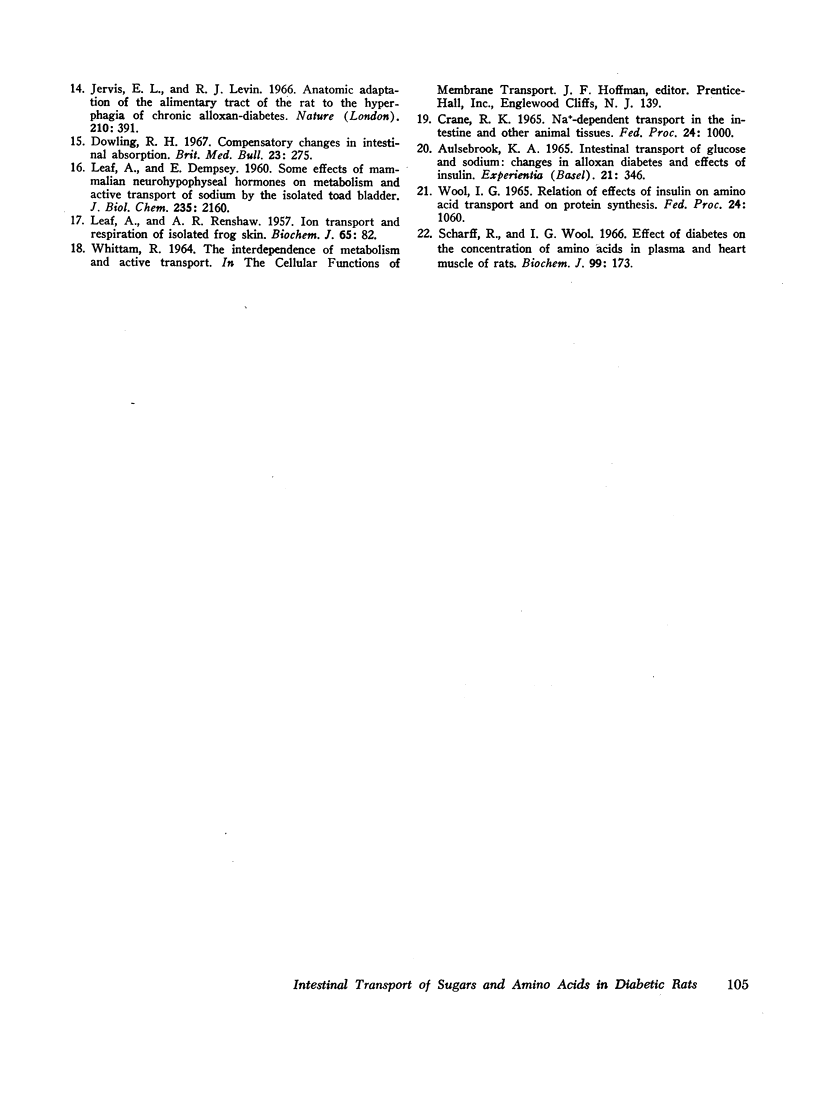
Selected References
These references are in PubMed. This may not be the complete list of references from this article.
- Aulsebrook K. A. Intestinal transport of glucose and sodium: changes in alloxan diabetes and effects of insulin. Experientia. 1965 Jun 15;21(6):346–347. doi: 10.1007/BF02144708. [DOI] [PubMed] [Google Scholar]
- Barber H. E., Welch B. L., Mackay D. The use of the logarithmic transformation in the calculation of the transport parameters of a system that obeys Michaelis-Menten kinetics. Biochem J. 1967 Apr;103(1):251–255. doi: 10.1042/bj1030251. [DOI] [PMC free article] [PubMed] [Google Scholar]
- CRANE R. K. An effect of alloxan-diabetes on the active transport of sugars by rat small intestine, in vitro. Biochem Biophys Res Commun. 1961 Apr 28;4:436–440. doi: 10.1016/0006-291x(61)90304-7. [DOI] [PubMed] [Google Scholar]
- CRANE R. K., MANDELSTAM P. The active transport of sugars by various preparations of hamster intestine. Biochim Biophys Acta. 1960 Dec 18;45:460–476. doi: 10.1016/0006-3002(60)91482-7. [DOI] [PubMed] [Google Scholar]
- Crane R. K. Na+ -dependent transport in the intestine and other animal tissues. Fed Proc. 1965 Sep-Oct;24(5):1000–1006. [PubMed] [Google Scholar]
- Dowling R. H. Compensatory changes in intestinal absorption. Br Med Bull. 1967 Sep;23(3):275–278. doi: 10.1093/oxfordjournals.bmb.a070571. [DOI] [PubMed] [Google Scholar]
- Jervis E. L., Levin R. J. Anatomic adaptation of the alimentary tract of the rat to the hyperphagia of chronic alloxan-diabetes. Nature. 1966 Apr 23;210(5034):391–393. doi: 10.1038/210391a0. [DOI] [PubMed] [Google Scholar]
- Junod A., Lambert A. E., Orci L., Pictet R., Gonet A. E., Renold A. E. Studies of the diabetogenic action of streptozotocin. Proc Soc Exp Biol Med. 1967 Oct;126(1):201–205. doi: 10.3181/00379727-126-32401. [DOI] [PubMed] [Google Scholar]
- LEAF A., DEMPSEY E. Some effects of mammalian neurohypophyseal hormones on metabolism and active transport of sodium by the isolated toad bladder. J Biol Chem. 1960 Jul;235:2160–2163. [PubMed] [Google Scholar]
- LEAF A., RENSHAW A. Ion transport and respiration of isolated frog skin. Biochem J. 1957 Jan;65(1):82–90. doi: 10.1042/bj0650082. [DOI] [PMC free article] [PubMed] [Google Scholar]
- Levine R. Cell membrane as a primary site of insulin action. Fed Proc. 1965 Sep-Oct;24(5):1071–1073. [PubMed] [Google Scholar]
- ROSENBERG L. E., BLAIR A., SEGAL S. Transport of amino acids by slices of rat-kidney cortex. Biochim Biophys Acta. 1961 Dec 23;54:479–488. doi: 10.1016/0006-3002(61)90088-9. [DOI] [PubMed] [Google Scholar]
- ROSENBERG L. E., DOWNING S. J., SEGAL S. Extracellular space estimation in rat kidney slices using C saccharides and phlorizin. Am J Physiol. 1962 Apr;202:800–804. doi: 10.1152/ajplegacy.1962.202.4.800. [DOI] [PubMed] [Google Scholar]
- Rosenberg I. H., Coleman A. L., Rosenberg L. E. The role of sodium ion in the transport of amino acids by the intestine. Biochim Biophys Acta. 1965 May 25;102(1):161–171. doi: 10.1016/0926-6585(65)90210-4. [DOI] [PubMed] [Google Scholar]
- Scharff R., Wool I. G. Effect of diabetes on the concentration of amino acids in plasma and heart muscle of rats. Biochem J. 1966 Apr;99(1):173–178. doi: 10.1042/bj0990173. [DOI] [PMC free article] [PubMed] [Google Scholar]
- VARMA S. D., BANERJEE S. Intestinal absorption of glucose in normal and diabetic rats: the effect of ethylene diamine tetra acetate (Edta). Indian J Med Res. 1963 May;51:507–511. [PubMed] [Google Scholar]
- Wool I. G. Relation of effects of insulin on amino acid transport and on protein synthesis. Fed Proc. 1965 Sep-Oct;24(5):1060–1070. [PubMed] [Google Scholar]


